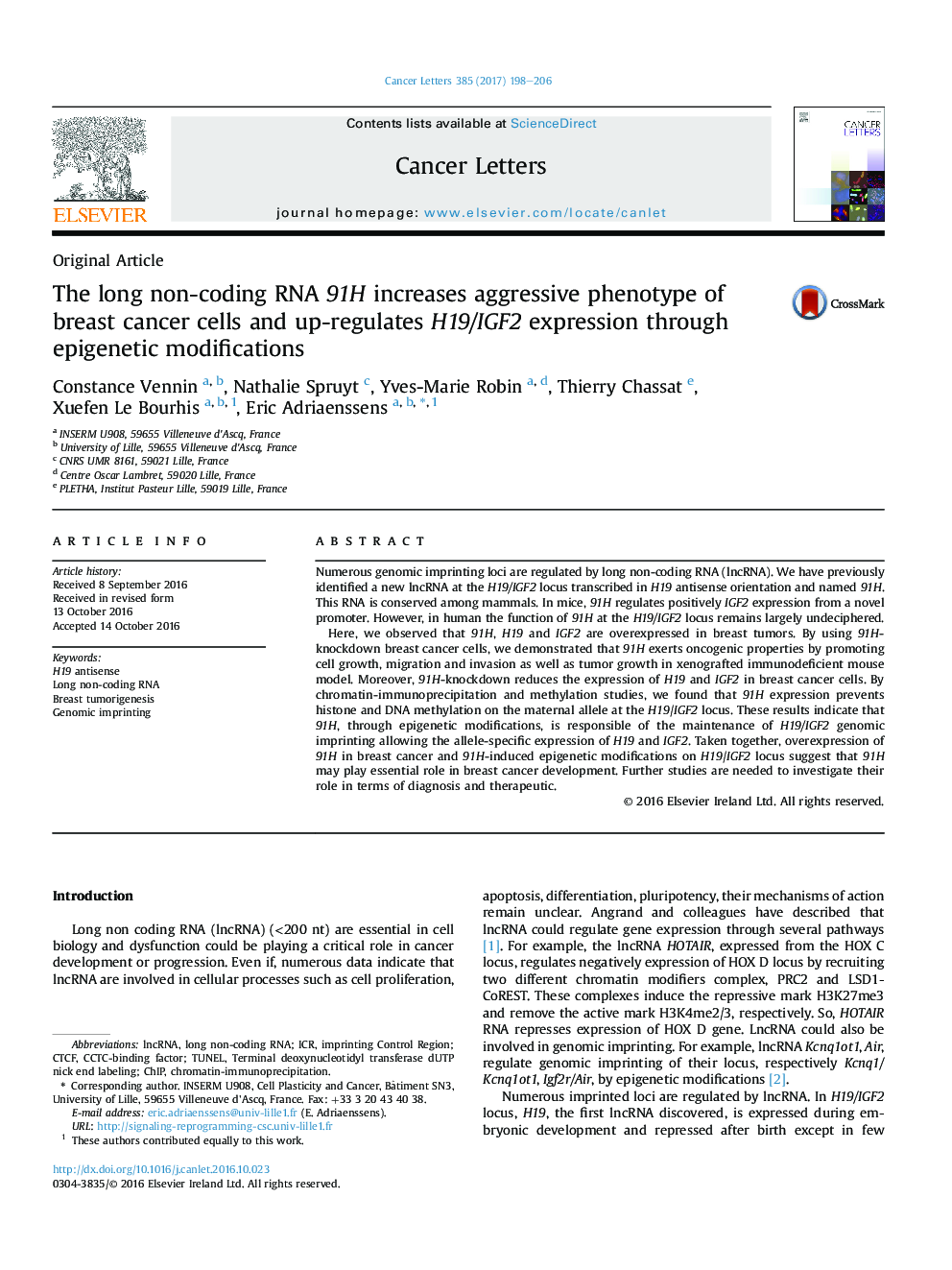| Article ID | Journal | Published Year | Pages | File Type |
|---|---|---|---|---|
| 5525727 | Cancer Letters | 2017 | 9 Pages |
â¢91H RNA have an oncogenic role in breast cancer.â¢91H RNA regulates both H19 and IGF2 expression.â¢91H RNA prevents epigenetic modifications on maternal allele.â¢91H RNA allows the maintenance of genomic imprinting.
Numerous genomic imprinting loci are regulated by long non-coding RNA (lncRNA). We have previously identified a new lncRNA at the H19/IGF2 locus transcribed in H19 antisense orientation and named 91H. This RNA is conserved among mammals. In mice, 91H regulates positively IGF2 expression from a novel promoter. However, in human the function of 91H at the H19/IGF2 locus remains largely undeciphered.Here, we observed that 91H, H19 and IGF2 are overexpressed in breast tumors. By using 91H-knockdown breast cancer cells, we demonstrated that 91H exerts oncogenic properties by promoting cell growth, migration and invasion as well as tumor growth in xenografted immunodeficient mouse model. Moreover, 91H-knockdown reduces the expression of H19 and IGF2 in breast cancer cells. By chromatin-immunoprecipitation and methylation studies, we found that 91H expression prevents histone and DNA methylation on the maternal allele at the H19/IGF2 locus. These results indicate that 91H, through epigenetic modifications, is responsible of the maintenance of H19/IGF2 genomic imprinting allowing the allele-specific expression of H19 and IGF2. Taken together, overexpression of 91H in breast cancer and 91H-induced epigenetic modifications on H19/IGF2 locus suggest that 91H may play essential role in breast cancer development. Further studies are needed to investigate their role in terms of diagnosis and therapeutic.
